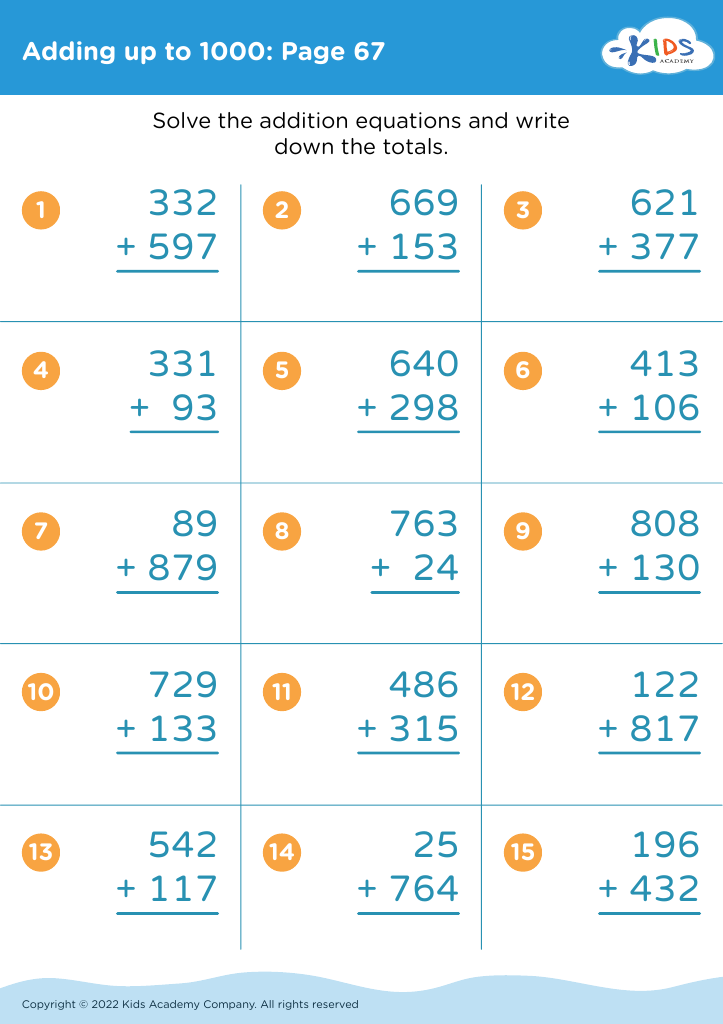Understanding multiplication Adding up to 1000 Worksheets for Ages 3-7
4 filtered results
-
From - To
Explore our engaging "Understanding Multiplication Adding Up to 1000 Worksheets" designed specifically for children aged 3-7! These interactive resources provide foundational math skills, introducing young learners to the concept of multiplication in a fun and accessible way. Each worksheet features colorful graphics and age-appropriate activities that encourage kids to practice multiplication by grouping and counting. Perfect for home or classroom use, these worksheets help reinforce learning through repetition and creativity. Foster a love for math while building confidence in your child's understanding of multiplication. Start your child's math journey today with our thoughtfully crafted materials that make learning enjoyable!
Understanding multiplication and concepts that lead up to it, particularly for children aged 3-7, is crucial for cognitive development and foundational math skills. At this age, children are naturally curious and eager to learn, making it an ideal time to introduce mathematical concepts. Multiplication, in essence, prepares them for more complex arithmetic, enhances problem-solving capabilities, and fosters logical thinking.
When parents and teachers prioritize these early math skills, they help lay the groundwork for future learning. Early exposure to multiplication through engaging activities like grouping, visual aids, and interactive games makes the concept less intimidating and more relatable. It enhances a child's ability to make connections—such as recognizing that 5 groups of 2 equals 10—promoting number sense.
Furthermore, understanding multiplication and partnering it with adding up to 1,000 can instill confidence in children and motivate them to tackle more challenging problems. Developing these skills early not only prepares children for school success but also meets learning standards and boosts their self-esteem. Ultimately, parents and teachers play a vital role in nurturing a love for math, setting children on a strong path for lifelong learning.















